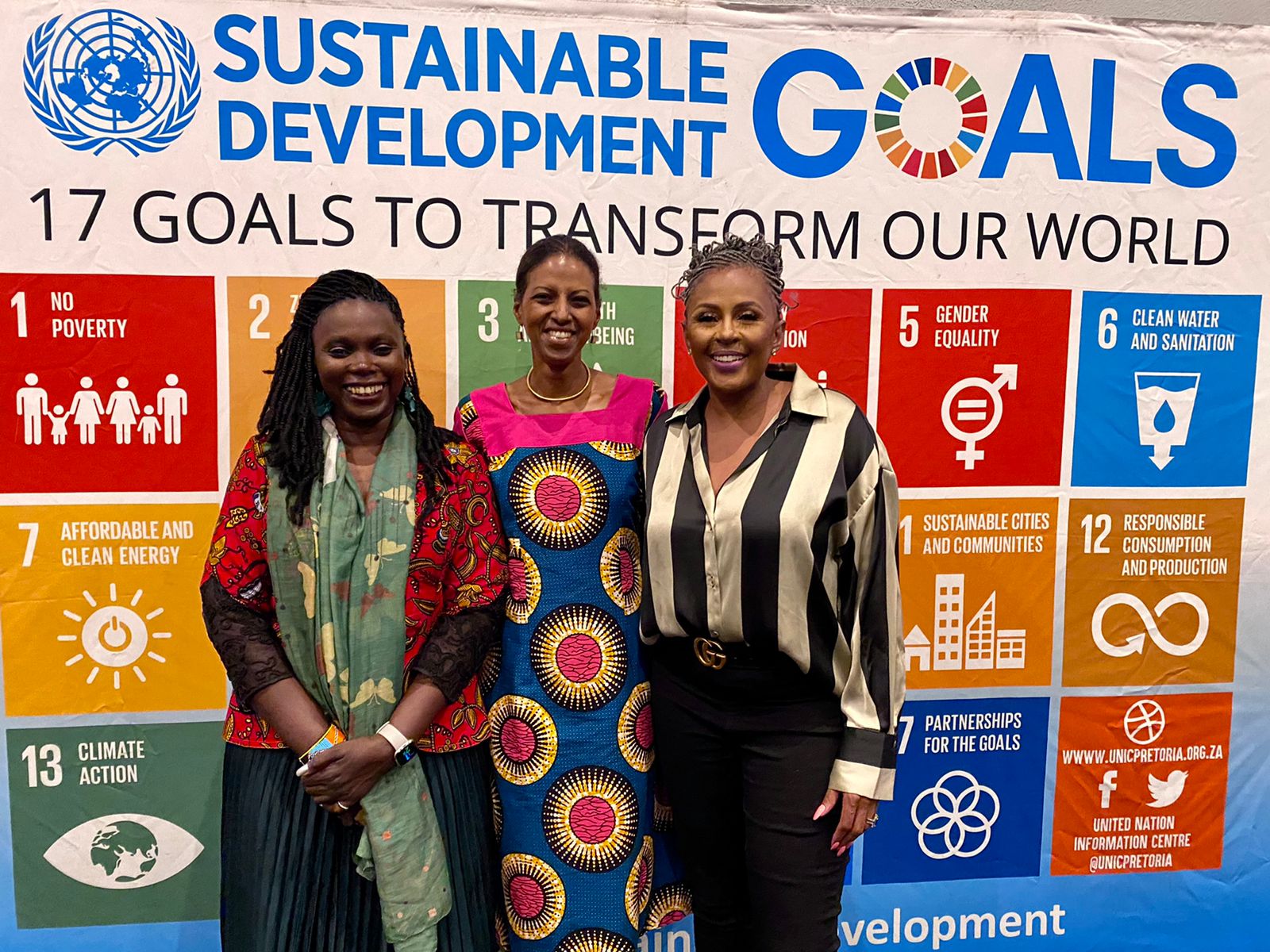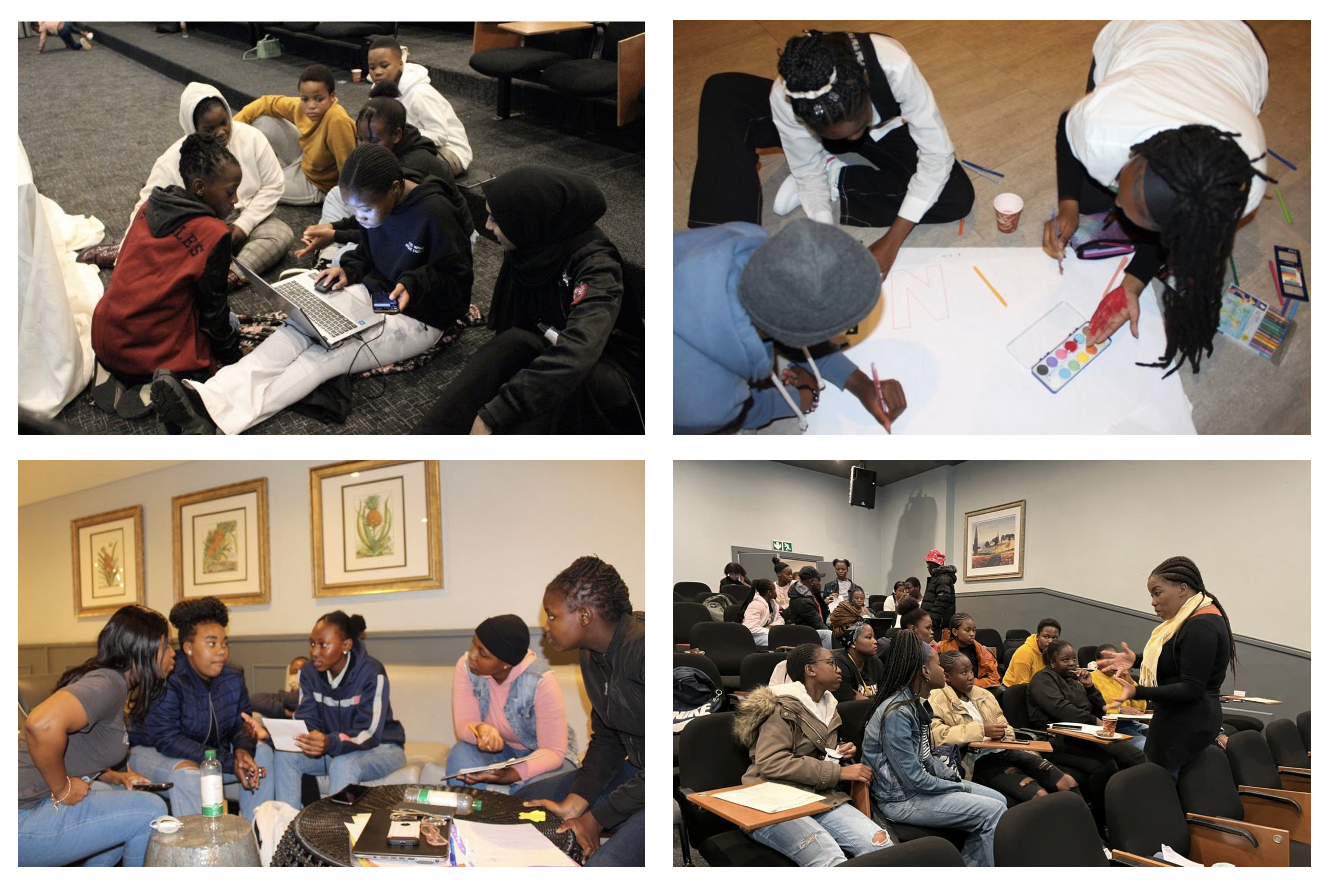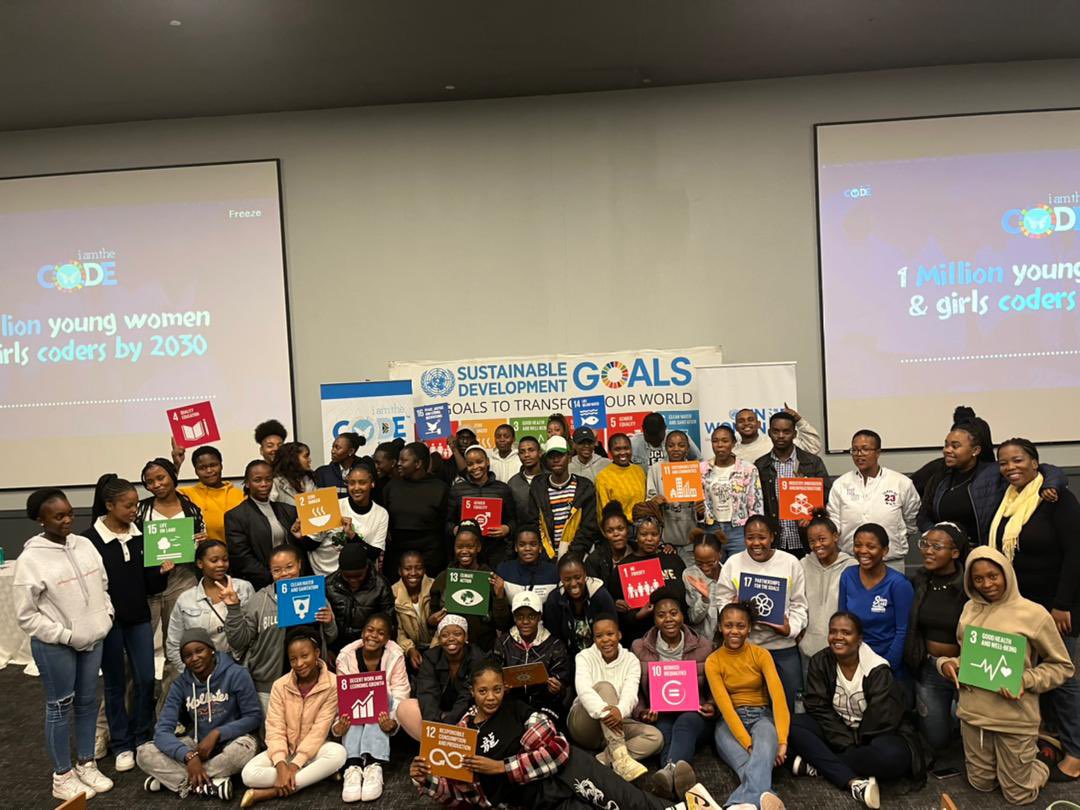Bridging the gender digital divide
Date:
UN Women Regional Office for East and Southern Africa and IamtheCODE just concluded a two-day hackathon in Johannesburg, South Africa which took place 24-25 March 2023. The hackathon aimed to equip 102 high schoolgirls from townships in Gauteng province with digital literacy skills that will give them a head start in life. The overall objective was to promote young women and girls as innovators to advance gender equality and the empowerment of women and girls through digital literacy. The hackathon required the girls to come up with innovative tech solutions to any of the 17 Sustainable Development Goals.
During the opening session, Lady Mariéme Jamme, the CEO and Founder of iamtheCODE said: “It is important for the future generation to be at the forefront of providing solutions contextualized for Africa and this digital era provides an opportunity to do so”. The hackathon was also graced by Madam Basetsana Kumalo, a South-African media personality, beauty pageant title holder and business woman, who encouraged the girls to be fearless in pursuing their dreams despite their backgrounds while sharing her life experiences as a person who grew up in Soweto.

Zebib Kavuma, the Deputy Regional Director, UN Women Regional Office for East and Southern Africa highlighted that the digital divide between girls and boys as a key challenge leaving women and girls unable to take advantage of the new digital world's opportunities as they have much lower access to technology than men and boys. In her speech she said, “you need to believe in your skills and ability to be leaders in the digital space and utilize spaces such as this hackathon to learn and grow”.
On the first day of the hackathon the focus was on unpacking the SDGs to give the young women a better understanding of the ambitious targets set by the UN to achieve sustainable development by 2030. The discussion gave the participants a better understanding of what the goals mean for the continent and for South Africa, empowering them to create meaningful solutions. Additionally, the mentors,high school teachers selected from schools in Gauteng province, educated the girls on how the coding kits worked and gave them a chance to assemble them as part of learning the external and physical hardware parts.

One of the participants, Thembelihle Nleya said: “I have always had a passion for coding but didn’t have access. Thanks to my school I find myself here today. I really enjoy playing around with computers and see myself as a future coder. Over the past two days I’ve loved being part of the hackathon because got to explore my dream a bit and learn about the SDGs. These kinds of initiatives keep us informed and educated and they transform us – I wish more girls could experience this.”
The second day had the girls geared up to present and share their innovative solutions to tackle SDG problems through App ideas. They were required to prepare a presentation on the SDG of their choice and propose a digital solution. The learners creatively curated their presentations and had an experienced panel of judges appraise their ideas and solutions. The girls also got to practice coding using the iamtheCODE kits which enhanced their understanding of how coding works.

The hackathon concluded with the judges announcing the three winning teams with the number one group being the yellow team. The hackathon concluded with all the girls receiving gift hampers to celebrate their learning and achievements. The partnership between UN Women and iamtheCODE includes empowering young women and girls in Africa by changing their career trajectories and building STEM competencies and engagement from their communities, through the iamtheCODE digital platform, hackathons, mentoring and tailored programs. UN Women will continue to explore additional areas of collaboration with iamtheCODE to advance young women and girl’s skills in digital literacy.